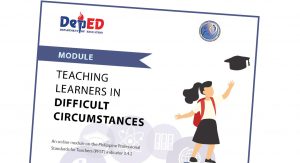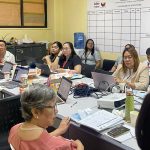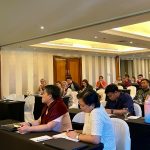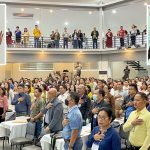Module on Teaching Learners in Difficult Circumstances: A Sneak Peek
How would you teach learners in difficult circumstances?
 RCTQ has worked with the National Educators Academy of the Philippines in developing two online modules, which will be publicly available soon, which will assist the Department of Education in supporting teaching and learning during and after the health crisis. One of them is a module containing illustrations of good teaching practices that elaborate Indicator 3.4.2 of the Philippine Professional Standards for Teachers (PPST):
RCTQ has worked with the National Educators Academy of the Philippines in developing two online modules, which will be publicly available soon, which will assist the Department of Education in supporting teaching and learning during and after the health crisis. One of them is a module containing illustrations of good teaching practices that elaborate Indicator 3.4.2 of the Philippine Professional Standards for Teachers (PPST):
“Plan and deliver teaching strategies that are responsive to the special educational needs of learners in difficult circumstances, including: geographic isolation; chronic illness; displacement due to armed conflict, urban resettlement or disasters; child abuse and child labor practices” (PPST Indicator 3.4.2).
The PPST defines the characteristics of a quality teacher in the 21st Century in the Philippines, including possessing the knowledge and ability to “establish learning environments that are responsive to learner diversity”. This characteristic is embedded in Domain 3 of PPST.
Domain 3 emphasizes the central role of teachers in establishing learning environments that are responsive to learner diversity. This Domain underscores the importance of teachers’ knowledge and understanding of, as well as respect for, learners’ diverse characteristics and experiences as inputs to the planning and design of learning opportunities.
It encourages the celebration of diversity in the classrooms and the need for teaching practices that are differentiated to encourage all learners to be successful citizens in a changing local and global environment.
The module, which has separate versions for teachers and for their mentors, is called Teaching Learners in Difficult Circumstances.
Indicator 3.4.2 is among those identified as most difficult for teachers, and as one of DepEd’s professional development priorities for teachers based on the PPST study and DepEd Memorandum 50, s. 2020, respectively. It is among the indicators included in the PPST-based Results-based Performance Management System (RPMS) for SY 2020-2021.
Teaching and learning circumstances during the pandemic have presented serious risks for many children and learners, especially those living in difficult circumstances. Both public and private education institutions in the basic and higher education sought ways to continue delivering education remotely. The Department of Education (DepEd) developed the Basic Education Learning Continuity Plan (BE-LCP) in the time of COVID-19. It contains a provision for the large-scale use of Alternative Delivery Modalities (ADMs) for SY 2020-2021 to help schools deliver responsive and high-quality instruction and assessment for learners while practicing social distancing.
Across all these ADMs, the BE-LCP recognizes that distance learning would be the key modality of learning delivery for SY 2020-2021 where the physical learning environment shifted from the school classroom to the home and virtual spaces, and the teacher-learner interactions changed from in-person to online interactions with printed or digital self-learning modules (SLMs) as primary learning materials.
This module focuses on a systematic and collaborative approach that would benefit the teachers’ process in utilizing responsive teaching practices while providing appropriate support for Children in Especially Difficult Circumstances (CEDC).
At the conclusion of the module, teachers are expected to i) understand the contexts in which Filipino learners in difficult circumstances are situated; ii) identify and use instruction and assessment strategies that are appropriate for different groups of learners in difficult circumstances; and iii) develop instructional plans and intervention strategies to support learners in difficult circumstances with the aim of improving their learning outcomes.
The module is made up of four elements: General Instruction, Targeted Instruction which introduces instructional and assessment strategies teachers can use for their whole class that are helpful for learners in difficult circumstances; Individualized Intervention which introduces instructional and assessment strategies teachers can use for identified learners in difficult circumstances who are needing supplemental support; and Individualized Intervention, which introduces instructional and assessment strategies teachers can use for identified learners in difficult circumstances who are needing highly individualized support.
This mentor’s guide is developed to help master teachers and school leaders mentor and further support teachers. Both materials are suitable to use in learning action cells (LAC), classroom applications, and mentoring.
Whether a teacher or a master teacher, whether a public or a private school teacher, getting a copy of this module is a must. Watch out for its official launch by NEAP in the coming weeks.
https://www.rctq.ph/?p=3064FeatureCOVID-19,NEAP,PPST






